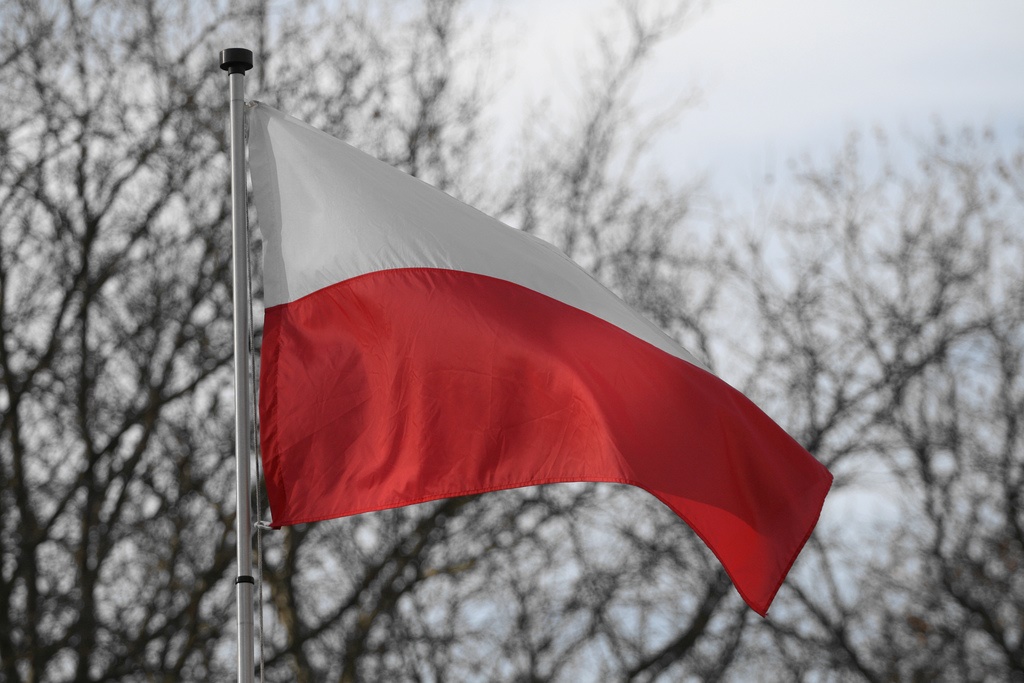Poland’s conservative Law and Justice Party sweeps to power on anti-refugee rhetoric

European Union member states continue to negotiate the terms of a unified response to the refugee crisis. Humanitarian groups are urging swift action as the weather changes, further exacerbating the dangerous conditions refugees face along migration routes.
The EU reached a tentative deal with Balkan nations during a mini-summit over the weekend and German Chancellor Angela Merkel is now in Turkey pitching a plan that would increase EU aid to the nation in exchange for Turkish cooperation in preventing refugee migration to Europe.
Anti-refugee rhetoric is already influencing some voters in Europe. Polish election officials today confirmed a sweeping victory for the conservative Law and Justice Party. The right-wing party – which played to nationalists fears of refugees during the campaign – now handily controls both houses of Parliament, meaning it does not have to go through the motions of coalition-building and compromises to make policy. FSRN’s Filip Warwick reports from Warsaw.
The Polish electorate voted in a new conservative government during parliamentary elections last Sunday. Both main political parties, the Citizens Platform and the Law and Justice Party, made a central issue of the refugee crisis in Europe.
During the campaign, Former Prime Minister and leader of the Law and Justice party, Jarolsaw Kaczynski, stoked fears about refugees, saying they are bringing diseases to Europe.
Humanitarian lawyer Malgorzata Smolak says the rhetoric amounts to nationalist scapegoating for political gain.
“They are trying to build up fear against refugees and fear about Islam,” Smolak says. “And they try to give their message to society there is a kind of threat and that politicians from each party will stop it so they won’t allow refugees to come to Poland.”
Poland is one of the most ethnically homogeneous societies in the European Union. The country has also has experienced relative economic prosperity for the past 20 years and was the only nation in the European continent to avoid the global recession of 2008.
“Up to now we have had almost no refugees, I think last year we had only 200 refugees came to Poland, so for a country of almost 40 million, is almost nothing,” Smolak explains, saying politicians used the fear of losing economic gains as a way of painting refugees as a potential threat to the average citizen. “But this message from the government is that there will be a flood of refugees, and that we are still this new country in the European Union; so why we should share the same responsibility as Western countries which are more developed.”
Poland does have a Syrian community but it is small, with only an estimated 1000 members. Kamil Saleh, a Syrian refugee and musician, recently arrived and was able to settle down relatively smoothly. It helped that he studied Slavonic languages in Syria, which allows him to communicate with Polish locals on daily basis.
“I think that any person who has not experienced war really has no idea of the psychological difficulties one goes through,” says Saleh. “Say before the war when you heard gunfire out in the street this would cause panic and shock but now it’s part of the surrounding environment. Hence it’s difficult for Poles and Europeans to grasp the reality when it comes to dealing face to face with conflict situations.”
After a long standoff with the European Union regarding the refugee crisis, former Polish prime minster Ewa Kopacz agreed last month to accept 6,500 war refugees as part of the EU resettlement plan, albeit after having faced heavy criticism from its Western partners.
The new government comes into power this week, and it’s unclear if the “eurosceptic” party will take an even a harder line on refugees arriving in the country.
Thirty years ago, at the height of the Cold War, Poland had its own emigration crisis and saw the birth of the Solidarity movement. That spirit of mutual aid is now hard to find in contemporary Polish politics.











